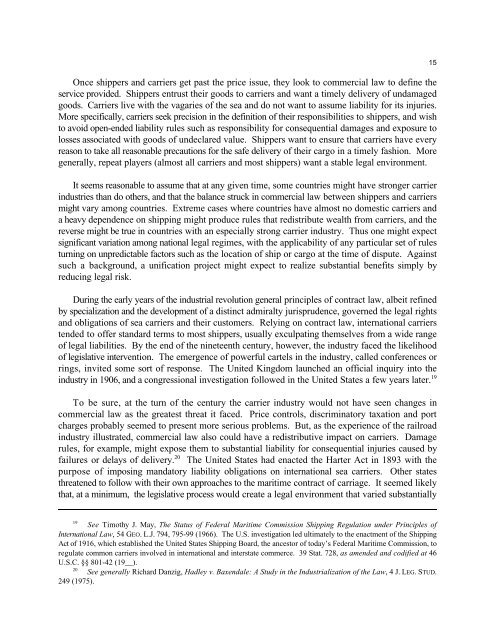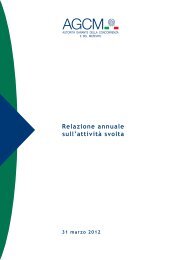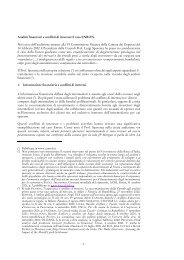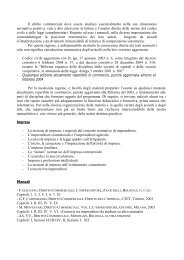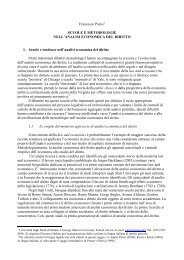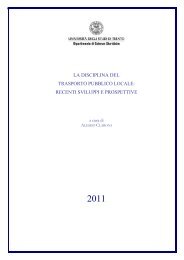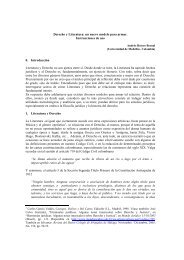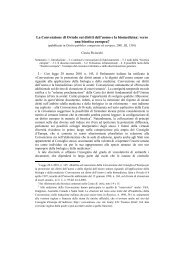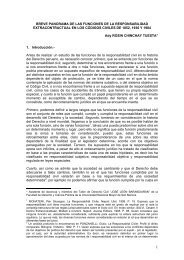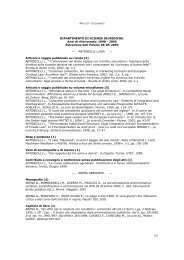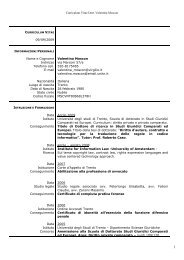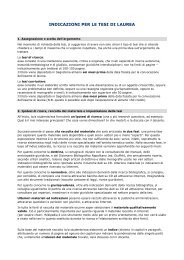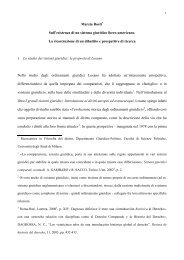The Futility of Unification and Harmonization in International ...
The Futility of Unification and Harmonization in International ...
The Futility of Unification and Harmonization in International ...
You also want an ePaper? Increase the reach of your titles
YUMPU automatically turns print PDFs into web optimized ePapers that Google loves.
Once shippers <strong>and</strong> carriers get past the price issue, they look to commercial law to def<strong>in</strong>e theservice provided. Shippers entrust their goods to carriers <strong>and</strong> want a timely delivery <strong>of</strong> undamagedgoods. Carriers live with the vagaries <strong>of</strong> the sea <strong>and</strong> do not want to assume liability for its <strong>in</strong>juries.More specifically, carriers seek precision <strong>in</strong> the def<strong>in</strong>ition <strong>of</strong> their responsibilities to shippers, <strong>and</strong> wishto avoid open-ended liability rules such as responsibility for consequential damages <strong>and</strong> exposure tolosses associated with goods <strong>of</strong> undeclared value. Shippers want to ensure that carriers have everyreason to take all reasonable precautions for the safe delivery <strong>of</strong> their cargo <strong>in</strong> a timely fashion. Moregenerally, repeat players (almost all carriers <strong>and</strong> most shippers) want a stable legal environment.It seems reasonable to assume that at any given time, some countries might have stronger carrier<strong>in</strong>dustries than do others, <strong>and</strong> that the balance struck <strong>in</strong> commercial law between shippers <strong>and</strong> carriersmight vary among countries. Extreme cases where countries have almost no domestic carriers <strong>and</strong>a heavy dependence on shipp<strong>in</strong>g might produce rules that redistribute wealth from carriers, <strong>and</strong> thereverse might be true <strong>in</strong> countries with an especially strong carrier <strong>in</strong>dustry. Thus one might expectsignificant variation among national legal regimes, with the applicability <strong>of</strong> any particular set <strong>of</strong> rulesturn<strong>in</strong>g on unpredictable factors such as the location <strong>of</strong> ship or cargo at the time <strong>of</strong> dispute. Aga<strong>in</strong>stsuch a background, a unification project might expect to realize substantial benefits simply byreduc<strong>in</strong>g legal risk.Dur<strong>in</strong>g the early years <strong>of</strong> the <strong>in</strong>dustrial revolution general pr<strong>in</strong>ciples <strong>of</strong> contract law, albeit ref<strong>in</strong>edby specialization <strong>and</strong> the development <strong>of</strong> a dist<strong>in</strong>ct admiralty jurisprudence, governed the legal rights<strong>and</strong> obligations <strong>of</strong> sea carriers <strong>and</strong> their customers. Rely<strong>in</strong>g on contract law, <strong>in</strong>ternational carrierstended to <strong>of</strong>fer st<strong>and</strong>ard terms to most shippers, usually exculpat<strong>in</strong>g themselves from a wide range<strong>of</strong> legal liabilities. By the end <strong>of</strong> the n<strong>in</strong>eteenth century, however, the <strong>in</strong>dustry faced the likelihood<strong>of</strong> legislative <strong>in</strong>tervention. <strong>The</strong> emergence <strong>of</strong> powerful cartels <strong>in</strong> the <strong>in</strong>dustry, called conferences orr<strong>in</strong>gs, <strong>in</strong>vited some sort <strong>of</strong> response. <strong>The</strong> United K<strong>in</strong>gdom launched an <strong>of</strong>ficial <strong>in</strong>quiry <strong>in</strong>to the<strong>in</strong>dustry <strong>in</strong> 1906, <strong>and</strong> a congressional <strong>in</strong>vestigation followed <strong>in</strong> the United States a few years later. 19To be sure, at the turn <strong>of</strong> the century the carrier <strong>in</strong>dustry would not have seen changes <strong>in</strong>commercial law as the greatest threat it faced. Price controls, discrim<strong>in</strong>atory taxation <strong>and</strong> portcharges probably seemed to present more serious problems. But, as the experience <strong>of</strong> the railroad<strong>in</strong>dustry illustrated, commercial law also could have a redistributive impact on carriers. Damagerules, for example, might expose them to substantial liability for consequential <strong>in</strong>juries caused by20failures or delays <strong>of</strong> delivery. <strong>The</strong> United States had enacted the Harter Act <strong>in</strong> 1893 with thepurpose <strong>of</strong> impos<strong>in</strong>g m<strong>and</strong>atory liability obligations on <strong>in</strong>ternational sea carriers. Other statesthreatened to follow with their own approaches to the maritime contract <strong>of</strong> carriage. It seemed likelythat, at a m<strong>in</strong>imum, the legislative process would create a legal environment that varied substantially1519See Timothy J. May, <strong>The</strong> Status <strong>of</strong> Federal Maritime Commission Shipp<strong>in</strong>g Regulation under Pr<strong>in</strong>ciples <strong>of</strong><strong>International</strong> Law, 54 GEO. L.J. 794, 795-99 (1966). <strong>The</strong> U.S. <strong>in</strong>vestigation led ultimately to the enactment <strong>of</strong> the Shipp<strong>in</strong>gAct <strong>of</strong> 1916, which established the United States Shipp<strong>in</strong>g Board, the ancestor <strong>of</strong> today’s Federal Maritime Commission, toregulate common carriers <strong>in</strong>volved <strong>in</strong> <strong>in</strong>ternational <strong>and</strong> <strong>in</strong>terstate commerce. 39 Stat. 728, as amended <strong>and</strong> codified at 46U.S.C. §§ 801-42 (19__).20See generally Richard Danzig, Hadley v. Baxendale: A Study <strong>in</strong> the Industrialization <strong>of</strong> the Law, 4 J. LEG. STUD.249 (1975).


